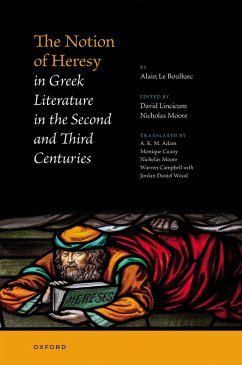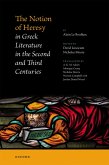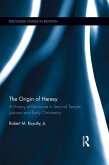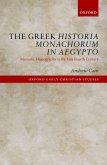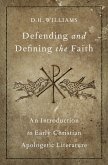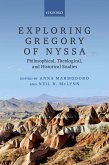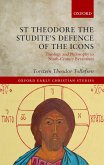Inspired by analogies betwen the construction of heresy and the representation of madness described by Michael Foucault in in Histoire de la folie à l'âge classique (Madness and Civilization), The Notion of Heresy in Greek Literature in the Second and Third Centuries demonstrates how the concept of heresy emerges in the work of Justin Matyr. It shows that this invention created a concept capable of dominating every current suspected of endangering ecclesial harmony, and transformed the tradition of Greek historiography of philosophical schools by combining it with the apocalyptic theme of diabolical conspiracy. Le Boulluec examines how this model is refined by Irenaeus, then modified by Clement of Alexandria and Origen. First published in 1985 as d'hérésie dans la littérature grecque (IIe-IIIesiècles), this newly translated work includes a substantial new introduction surveying literature in the previous decades. In line wth Walter Bauer's pioneering book, which overturned the confessional model making heresy a later falsification of orthodoxy, it shows that the notion of heresy was invented in the second century and then refined in order to remove all legitimacy from diversity and pluralism in the fields of doctrine and practice. Le Boulluec studies rhetorical practices and polemical assimilations to highlight key debates on the relationship between philosophy, Christianity, and Judaism, and to examine the conflict of interpretations that drive the exegesis of the Bible in constructing an orthodoxy.
Dieser Download kann aus rechtlichen Gründen nur mit Rechnungsadresse in A, B, BG, CY, CZ, D, DK, EW, E, FIN, F, GR, HR, H, IRL, I, LT, L, LR, M, NL, PL, P, R, S, SLO, SK ausgeliefert werden.

